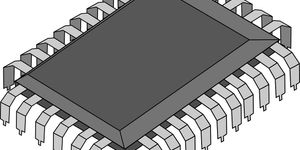Study Explores Link Between Cannabis Storage Conditions and THC Degradation
A study of (-)-∆9-trans-tetrahydrocannabinol (THC) degradation published in the Journal of Cannabis Research focused on the effect of storage conditions on THC availability in vaporized cannabis. The research team found that cannabis powder in polyethylene cartridges may be safely stored at room temperature for at least 2 years after cannabis production. This technique does not affect the aerosolized THC dose delivered to patients. This study contributes valuable findings that address the research gap regarding storage conditions on the phytocannabinoid stability of cannabis plant material.
The study assessed the stability of phytocannabinoids in ground cannabis before and after packaging in Syqe cartridges. Cannabinoid degradation happens at different stages and rates starting from once it is harvested. Cutting down the live plant during harvesting disrupts the cannabinoid biosynthetic pathways, and cannabinoids and terpenes synthesize into other compounds during the curing and packaging phases. Some factors that influence degradation include temperature, humidity, UV and oxygen.
The researchers stored ground cannabis inflorescence, known as flower, under different temperature and humidity conditions before or after placement into cartridges. Cannabinoid concentrations were analyzed at different time points using ultra-high-performance liquid chromatography (U-HPLC). THC doses aerosolized via the Syqe inhaler were evaluated using cartridges stored for up to 2 years at 25°C.
The researchers observed no significant changes in phytocannabinoid concentrations in ground flower after 3 months of bulk storage. The cannabis product was kept in a polypropylene container and sealed in an aluminum foil pouch at 5°C. However, they noted significant changes in phytocannabinoid concentrations when ground flower was stored in the cartridges at 25°C for 2 years. Specifically, CBGA, THCA, and total THC concentrations decreased by roughly 55%, 44%, and 21%, respectively. CBN and THC concentrations increased significantly over two years. Despite the significant change of relative cannabinoid composition within the cartridge, the actual THC dose in aerosol remained stable throughout the 2-year period.
The researchers suggest that the medical cannabis powder in cartridges may be safely stored at room temperature for at least 2 years after production. The findings indicate that storage duration does not affect the aerosolized THC dose delivered to patients.
Future studies should analyze additional phytocannabinoids and terpenes in the cannabis inflorescence and assess the stability of different cannabis cultivars following storage in Syqe cartridges.
Sources: Journal of Cannabis Research, Leafly








